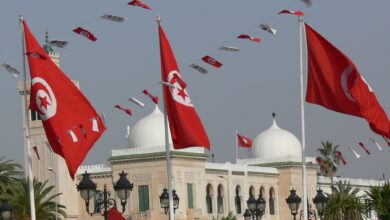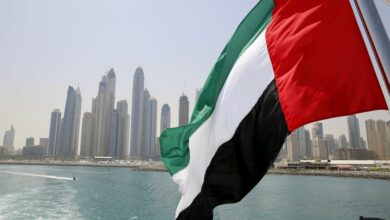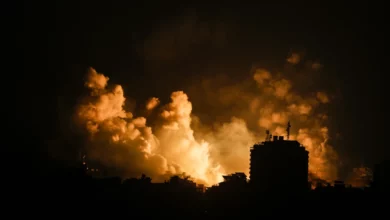As I write these lines, a 7pm curfew has been imposed in Tunis, perhaps the clearest sign thus far that the wave of protests and discontent that has taken over Tunisia since 17 December is not about to end.
I have spent the day following the scraps of news that come out of social networks and websites, being directed to the temporary websites where Tunisian online activists are storing videos of the protests–video-sharing sites are quickly blocked by Tunisian authorities and hence must change all the time. I spoke to a well-to-do young Tunisian from a prominent family who has effectively decided to give up what would have been a life of privilege by siding with the protesters and denouncing the corruption of the ruling family.
I read the sometimes deeply eloquent, sometimes quite hilarious responses to the speech that Tunisian President Zein al-Abideen Ben Ali delivered on Monday, in which he missed the opportunity to calm the situation by insinuating that demonstrators were foreign agents, promising the creation of 300,000 jobs in two years (that’s 17 new jobs every hour!) for unemployed graduates and thanking Libyan leader Muammar al-Qadhafi for offering to make it easier for Tunisians to go work in Libya.
There are strong rumors that the chief of staff of the army has just been dismissed for calling on police officers not to shoot protesters with live bullets (as they did over the weekend, claiming at least 35 victims and wounding many more). Other rumors circulating include that criminals have been released from prison to be used as hired hands against protesters, as several days of general strikes by various professional syndicates have been announced.
Schools and universities have been closed until further notice. The Tunisian stock market reached its lowest point in months today, as police beat up lawyers and artists that planned to stage a peaceful protest. Hotels that are normally full of Europeans fleeing the bitter winter are apparently empty, and in any case a stroll down Tunis’s Avenue Habib Bourguiba would be impeded by the numerous security troops.
I watched videos of demonstrators in poor towns in central Tunisia, for the first time since Ben Ali became president in 1987 in a coup, tear down portraits of their ruler and burn them, all the while chanting against the obscene corruption of his wife Leila Trabelsi and her family.
I have not been to Tunisia since 2003, in good part because after that trip–despite meeting some charming people–I never wanted to return. Having traveled to many Arab countries, I am no stranger to heavy security states and ubiquitous informants. But even Syria under Hafez al-Assad seemed freer and more relaxed than Tunis, where I was constantly followed and warned about leaving my laptop in my hotel room. Most shocking of all was the palpable fear one felt among ordinary people, a resignation that went far beyond being careful when discussing politics. It was a capitulation.
Tunisia may be, by the region’s standards, a relatively prosperous country with a sizeable middle class and decent education levels. But it’s supposed “economic miracle” (not so miraculous when ones considers how regime cronies control much of the country’s economic fabric) is in actuality a human nightmare. One felt stuck in a Hitchcock film, permanently assailed by a creeping sense of dread and unease.
The Tunisian regime has already lost more than power: it has lost legitimacy, and its demise is probably now merely a matter of time. Ben Ali’s rule has destroyed Tunisia’s political fabric and heavily damaged that of its civil society. This is why he could not see the warning signs that made his country, supposedly North Africa’s best model, turn against him. Without real politics–political leaders who can genuinely claim to represent people–there was no one to tell him what was happening, and no one with the moral authority to end the protests once they started. And now, it seems, the only means at his disposal to end the protests is repression and brutality.
That could work for a while. It may even work for several years, until Ben Ali is too old to rule. But it appears doubtful that the Ben Ali system will survive beyond the man.
There is an important lesson to learn for Tunisia’s neighbors, or indeed any ruler tempted by the illusion that growth alone can create a sound economic environment. Politics is not something distinct from economics, it is the mechanism by which an economy and a society is regulated. All the countries in North Africa have seen increasing income disparities, social frustration brought about by economic reforms and high-profile corruption among ruling elites. All of them feature political classes–from ministers to elected representatives–that generally can boast of little popularity or representativeness. All of them have young populations deeply frustrated by the status quo that are looking attentively at the Tunisian uprising.
If Tunisia’s lesson is lost on regimes, it won’t be lost on the people.
Issandr El Amrani is a writer on Middle Eastern affairs. He blogs at www.arabist.net. His column appears every Tuesday.




